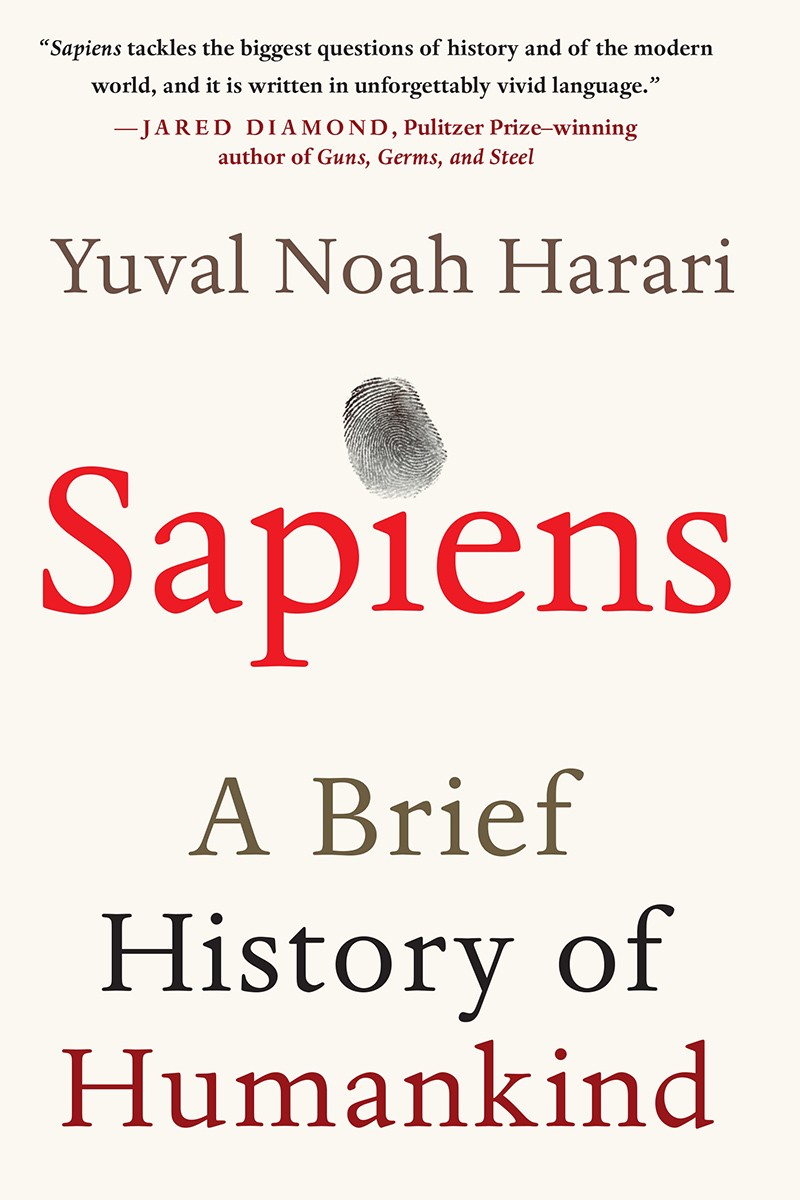Read in ‘Sapiens’ (2015) by Yuval Noah Harari:
Fascinating book. The Israeli world historian Yuval Noah Harari wrote a history of human beings that will thrill you when you read it. He explains how horrible the Agricultural Revolution really was for sheep, pigs, cows and chicken, and how disastrous industrial agriculture nowadays is. It is de sacrifice we have to make for developing our cities. “Without the industrialisation of agriculture the urban Industrial Revolution could never have taken place.” But he also explains how weak homo sapiens is. Only through cooperation can he survive. What makes us cooperate? Stories! “Myths, it transpired, are stronger than anyone could have imagined. When the Agricultural Revolution opened opportunities for the creation of crowded cities and mighty empires, people invented stories about great gods, motherlands and joint stock companies to provide the needed social links.” Most human cooperation networks, he adds, were forced, they were geared towards oppression and exploitation. “All these cooperation networks – from cities of ancient Mesopotamia to the Qin and Roman empires – were ‘imagined orders’. Capitalism is a myth. Even human rights are myths. Beliefs and religion are at the core of our society. “There is no way out of the imagined order. When we break down our prison walls and run towards freedom, we are in fact running in to the more spacious exercise yard of a bigger prison.”
Harari shows how money, empires and religions spread in order to realise a global vision. Only partly he plays the true historian; in fact he loves to stirr and to forecast. So, what is our imagined order in 2015? Are there any shared stories left? We’re among strangers now. Harari thinks the state and consumerism are the new narratives. “The nation does its best to hide its imagined character.” Thanks to the state we are living in peaceful times. But consumerism takes over. Peace is profitable now. So why bother? “But are we happy?”, he asks almost desperately. And all those animals being killed? No? What’s the benefit of capitalism if it does not make people (and animals) happier? Capitalism has no ethics. The result of capitalism is the collapse of family life and local communities. Now people are living in states and in markets. Then Harari enters the domain of ancient old wisdom, of ‘knowing thyself’, of buddhist meditation practices, etcetera. The last chapter is about the future, biotechnology, singularity, science fiction. He is afraid human being are behaving irresponsible, he thinks they feel like gods. What do we want to want, he tells us, is far more important than what do we want to become. No words on cities however, or wealth and fortunes of city life. Harari missed that one.

Geef een reactie